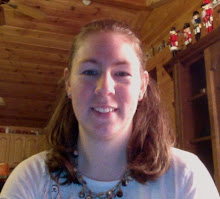Bilbo Baggins was a hobbit who wanted to be left alone in quiet comfort. But the wizard Gandalf came along with a band of homeless dwarves. Soon Bilbo was drawn into their quest facing evil orcs, savage wolves, giant spiders, and worse unknown dangers. Finally, it was Bilbo--alone and unaided--who had to confront the great dragon Smaug, the terror of an entire countryside!
I've known the story of Bilbo for years. Even before I picked up the novel, I had the picture book and read along cassette of his meeting with the goblins and Gollum, not to mention my dad playing the record album (yes, that nearly forgotten disc of black vinyl) featuring the section dealing with Smaug. I can still vaguely remember the sound of the dragon's voice and Bilbo doing his best to be brave.
The Hobbit by JRR Tolkien is such a classic. I think I would have still been a fan of fantasy without it, but it has enriched me in so many ways. Even the smallest of persons can make a difference in the world. It doesn't matter if others believe in you. It doesn't even matter if you believe in you at first. When you step out your door and do something you've never done, you'll learn so much more about what you're capable of than you would have ever thought. Bilbo was completely unprepared for anything; he even forgot his handkerchief. But along the way, he proves his worth to the dwarves and himself.
I also finally watched part one of the new movie (since it hit DVD). And while there are some changes, it was still well done. I was worried that there was going to be a bunch of padding just to draw things out in order to justify breaking the story into 3 parts. LotR was three books, three movies. The Hobbit as 1 book, three movies? Really? But considering how much of the tone of The Hobbit (and LotR) is the travel aspect, the scenery and so forth, that I didn't mind any of the sweeping camera views that technically weren't needed for plot. They helped carry the feel of the book.
I didn't even mind the dwarves being made a little more sympathetic than they were in the book. (Ahhh, Thorin *swoon*) They still didn't think Bilbo was going to be much use. So when my husband and I got to the part when they flee into the trees to escape the orcs and wargs, I was on the edge of my seat. And what Thorin said to Bilbo after they'd been rescued by the eagles made me cry. All the changes I might have muttered about in mild annoyance paid off right there. I didn't care anymore at that point. So now I'm really looking forward to part 2 in a way I hadn't had for part 1 after so long a wait since LotR.
I'm dropping the A-to-Z challenge with this post. Too many things going on, and this one has to go before I get overly stressed. I'll try to keep up with reading other people's posts, though. After all, with not having to read and then write about quite so many books all at once, that will be easier. I'll still be posting this month, but only 2-3 times a week. Best wishes to those of you still doing the challenge. I'll see you around.







